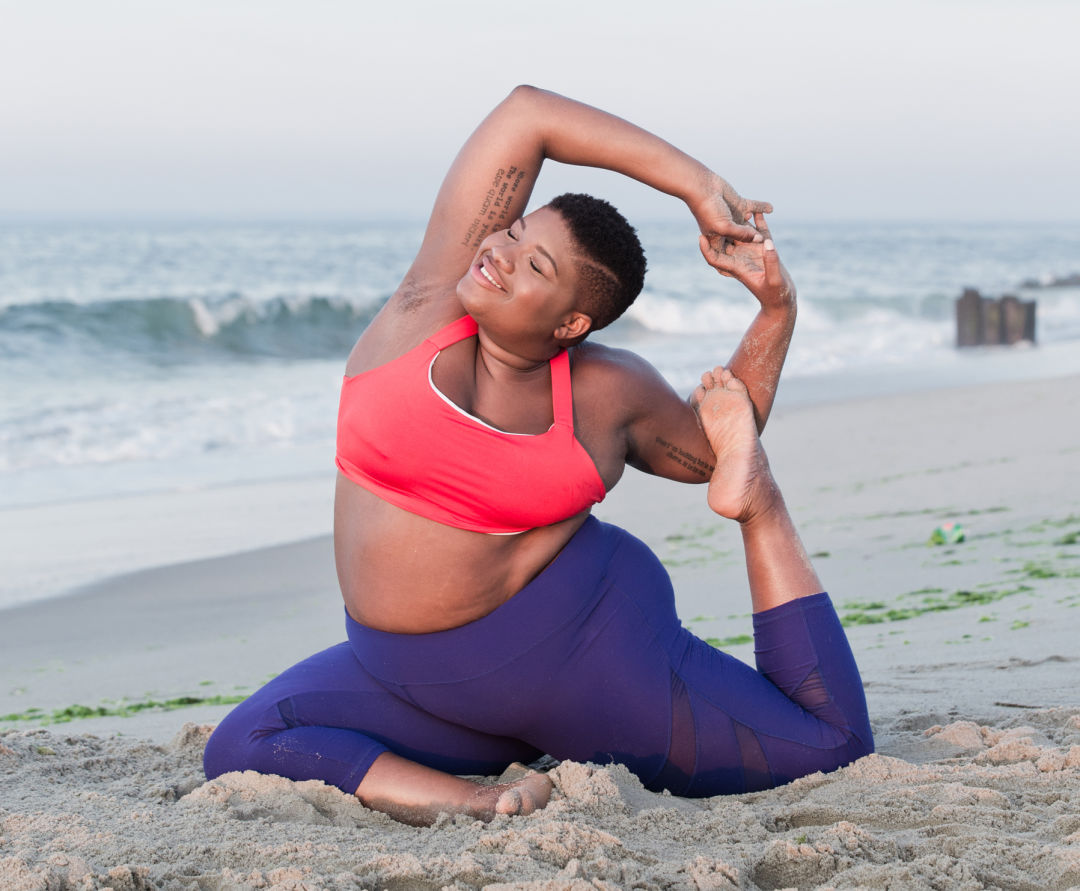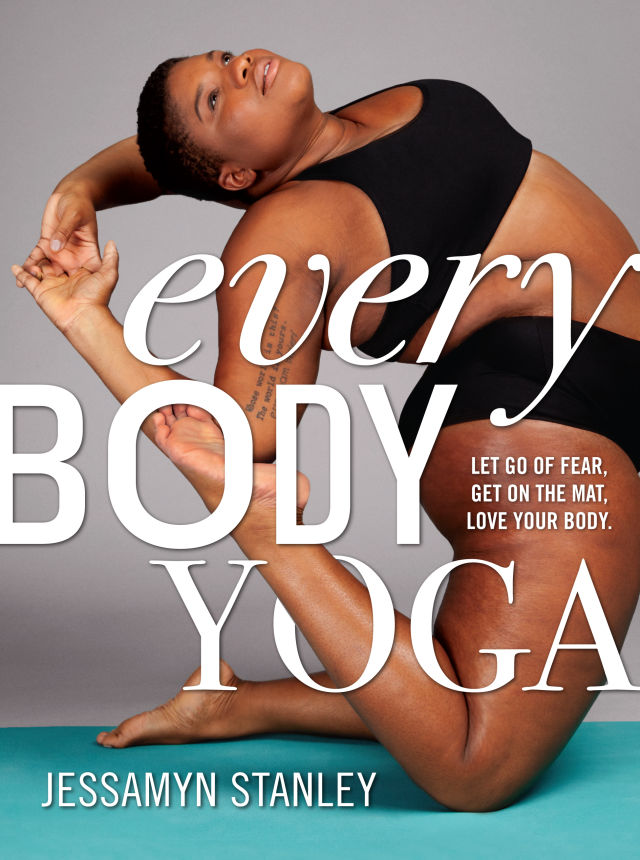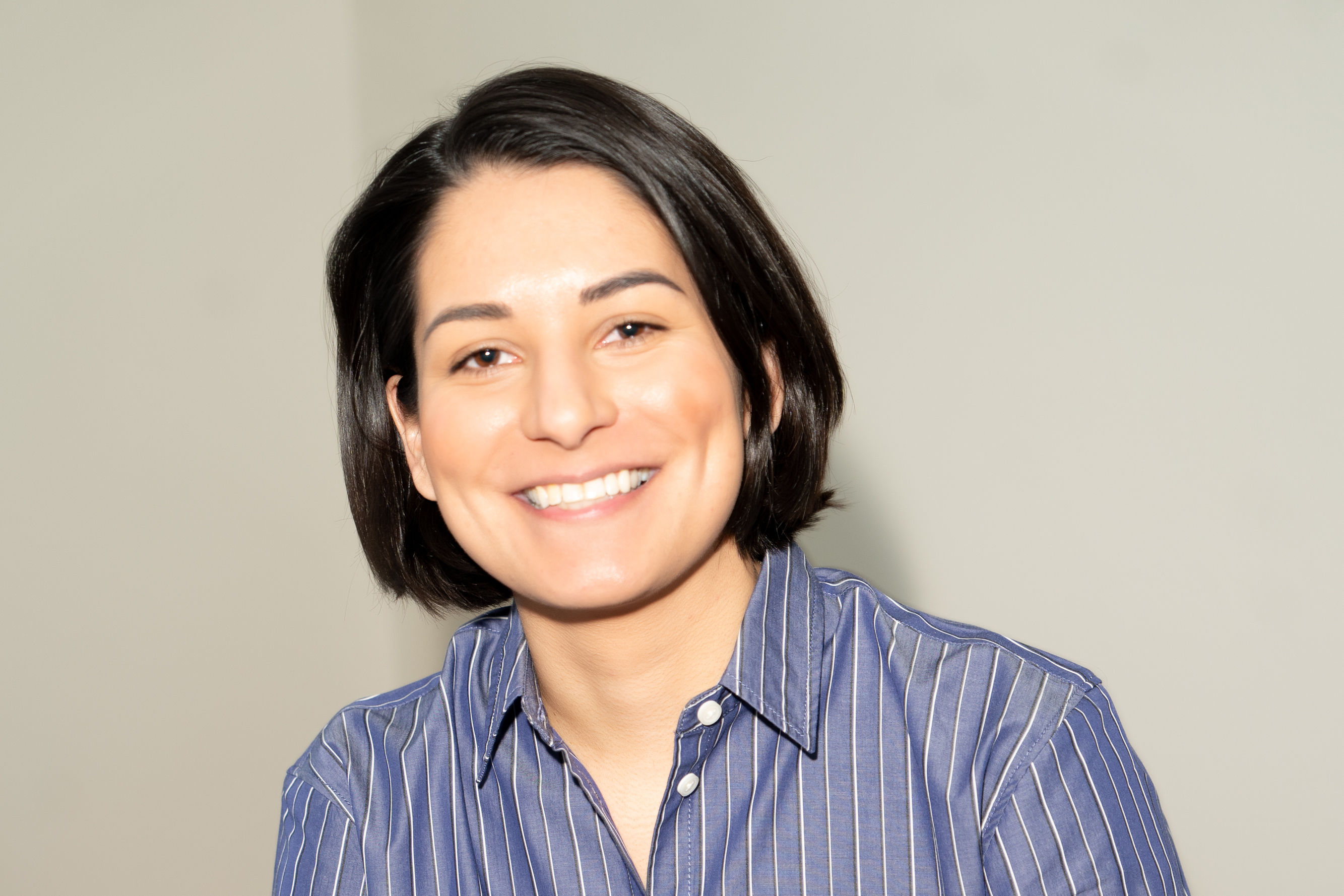Yoga Star Jessamyn Stanley Talks Queerness, Fat Acceptance, and Deleting Social Media

Jessamyn Stanley is the author of Every Body Yoga.
Image: Christine Hewitt
Search the phrase “yoga celebrity” and you’re likely to find photo after photo of thin, white, straight, cisgender women—and then there’s Jessamyn Stanley. A proud black, fat, queer femme, Stanley began documenting her home yoga practices on Instagram in 2012. Since then, the North Carolina-based yogi has attracted nearly 300,000 followers (not to mention a slew of endorsement deals) with her impressive headstand pics and reflective, essay-length captions on topics like body positivity and the yoga industrial complex.
In April, Stanley released her first book, Every Body Yoga: Let Go of Fear, Get On the Mat, Love Your Body. The book includes Stanley’s personal history with yoga, frequently asked questions from yoga beginners, and colorful photos that lead readers through their own home asana practices. Since the basics (“How did you start doing yoga?”) are tackled in Every Body Yoga, we asked Stanley a few deeper questions in advance of her May 8 appearance at Powell’s City of Books.

Every Body Yoga was published in April 2017.
In Portland, as in many other places, we have fat yoga, queer and trans yoga, and people of color yoga. How do you feel about these special classes?
I’m someone who just made space for themselves in a community that didn’t necessarily want them to take up space. In the beginning, I felt like we should be integrating all of these spaces, and everyone should try to find a way to be comfortable, and there should be more of an emphasis on the teachers learning how to communicate better and making safer spaces.
But there’s so much unsafe behavior that I think that, if you feel as though you cannot find safety in a mixed environment, then we should have spaces that are separate. Whether or not I will personally be in them is a separate issue—I don’t necessarily know that I will be attending those spaces all the time.
Friends have told me about being fat-shamed by teachers in the middle of classes, and being told they aren’t allowed to modify poses. How would you handle this?
I think the best thing to do is to express exactly how you’re feeling. There are a lot of little unintentional offenses that happen in classes, but the teacher never even knows that the student felt uncomfortable because the response from the student is like, “I’m not good enough; I shouldn’t have even come; I’m not coming back.” And the teacher—especially if they’re size-phobic—they’re thinking, “Oh, I guess they couldn’t handle it.” There can’t be change if we don’t talk about things.
You’re very casual and open about the fact that you’re queer, femme, Baha’i, etc. How did you decide to share so much about your life, rather than just photos of yoga poses?
I had a point about two years ago where I considered deleting my social media accounts. I feel like, as a yoga practitioner, you should be trying to move away from major expressions of the ego—and to me, that’s so much of what social media is. And at some point in the future, I would like to release those things.
But the thing that kept me on Instagram was this opportunity to really show, like, what does a 21st-century yoga practice look like? A 21st-century modern yoga practice with someone who is problematic, who fits in intersections, who listens to hip hop, who uses profanity, who is open about their struggles and about the fact that they accept the “bad aspects” of themselves? It means showing myself compassion, being honest, and making space for other people to do the same.
I don’t really think like, “Oooh, is this going to give perspective on the black queer femme experience?” I just talk about the things that are on my mind. I know there are going to be other black queer femmes who find the things I say to be problematic, and that’s dope. We all need to be talking to one another.
I’ve noticed that you call yourself a femme rather than a woman, and you’ve said before that you “pass for cisfemme all the time.” Can you talk about your experience with gender?
I don’t see myself as a being that exists in a binary at all. I have a lot of different things to unpack there, but my overall feeling is that I am queer; I am not cisgender. And I identify as femme because I have always found myself drawn to that which I would call femme. It’s not associated with specific colors or actions or anything like that. I know when I feel it and see it, and I know it as it exists in me. And it is not at all cis.
It’s really important for me to own that because I feel like I’m constantly in situations where I am worried that I’m passing for cis. There are so many people who would see me and have no idea that they’re interacting with a queer person. I’ve learned just how many people don’t even understand what queerness is.
Some activists argue that the body positivity movement is still centering conventionally attractive bodies. Do you think the movement should focus more on fat acceptance?
I feel like fat positivity and body positivity need to be separated from one another. Body positivity came out of fat acceptance, which is so fucking radical and completely different. It’s like Christianity coming out of Judaism. The actual body positivity message that’s been diluted is: no matter who you are, no matter where you are, no matter what your body looks like, no matter what’s going on in your mind, you should feel good about yourself today.
Do you think body positivity is being coopted to make a profit?
Corporations led by cis white het[erosexual] men are notorious for coopting things because they’re trying to make money. Just recently, they realized that they’re missing out on a lot of fat girl money, so they’re like, “OK, we have a halfway fat girl over here, and she’s kind of tan, so now we’re body positive!” It’s just like, what is the point here?
The reality is that none of this matters. These are just distractions from us trying to understand this universe, and I think that the more internal searching that can happen, the better. So while I do consider myself to be a body-pos advocate, I would not want to stand on a platform for any of these things, because I think they’re Band-Aids on a larger wound.
Jessamyn Stanley with Andi Zeisler
7:30 pm Mon, May 8, Powell’s City of Books, FREE




